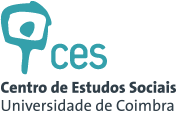Seminário Aberto
Healing Hands, Harming Hands: THe Ethics of Decision in Morrison's Beloved
Mariangela Palladino (CES)
19 de abril de 2013, 17h30
Instituto de Estudos Norte-Americanos, Faculdade de Letras da Universidade de Coimbra
Resumo
There are certain things that force your hand. You find yourself incontrovertibly obligated: something occurs prior to owing, and more fundamental still than that of which any trace of empirical guilt can give an account. […] You do not have to do anything about your liability, and most finitudes don’t. Still it copilots your every move, planning your finitude….There can be no doubt about it. What is required is a genuine ethics of decision. Anita Ronell
Morrison’s fiction offers fascinating examples of narrativizations of the human hand: the hand plays a crucial role in the exegesis of some key passages of her work. The representation of the hand offers an interesting and fertile field to investigate the ethical inscribed into writing. Tool-enabled hands, bare hands, hands performing violence, caring hands, play a crucial role in the process of signification and in narrative ethics. Focusing on Morrison’s most controversial novel, Beloved, for its forceful engagement with the ethics of representation, this seminar will offer an excursus on healing hands, holding hands, the hand as an organ of cognition.
Further, I will embark upon an analysis of the relationship between representations of the hand performing violence and the ethics of telling. The hand in Beloved affects the reader’s reception (and judgement) of the Sethe’s act and it shapes the perception of agency. Hands are portrayed in Morrison’s text in a defamiliarizing way so as to escape any straightforward reception or judgment on the part of the reader, this has a significant impact on the ways of (ethically) telling a story.
Thus, the scope of this seminar is to investigate the representations of the human hand in the novel and to assess its relation to agency and the ethical narrative. I argue that Morrison’s text resurrects the ethical by inscribing it in its form: in my proposed reading, the hand, and the ways it is represented, constitutes the vehicle for Morrison’s text to ethically tell the un-speakable. Postcolonial writing, while narrativizing an ethically debatable issue such as the filicide in Beloved, eschews signification by demanding the reader to ultimately formulate an ethical judgment.
Nota biográfica
Mariangela Palladino holds a PhD in Postcolonial Studies from the University of Strathclyde (UK). She has lived and worked in Scotland for over nine years researching and lecturing at the Universities of Strathclyde, Glasgow and Edinburgh. Her research interests lie at the intersection of Postcolonial literatures and cultures, diaspora, migration studies, and narratology. Her monograph on Toni Morrison’s fiction, titled The Forms of Ethics is forthcoming with Rodopi (December 2013). Other works-in-progress include: a co-edited book, The Globalization of Space: Foucault and Heterotopia (Pickering & Chatto, London, 2014); another co-edited collection, Displaced Women: Multilingual Narratives of Migration in Europe (Cambridge Scholars, Cambridge, November 2013). She has published in several international journals among which: (John Hopkins UP) and The Journal of South African and American Studies (Routledge); her work has also been selected and included in the first Festschrift to Toni Morrison, in 2011. Mariangela Palladino is a reviewer-evaluator for MELUS: Multi-Ethnic Literature of the United States (Oxford Journals), and regularly writes reviews for the Journal of Postcolonial Writing (Taylor and Francis). She has joined the University of Coimbra for a post-doctoral project at CES in September 2012.
Nota: Atividade no âmbito do Programa de Doutoramento em Estudos Americanos (FLUC/CES)

